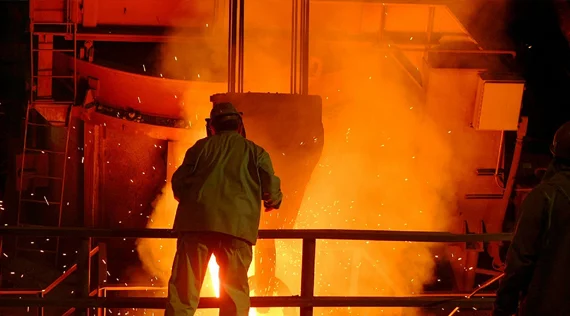US Steel Body Declares Stance on Trade Deficit and Unfair Trade Practices
Steel News | 2017-05-12 01:27:02
In his comments, Kevin M. Dempsey, Senior Vice President-Public Policy and General Counsel noted that unfair trade practices by foreign governments have led to surge in dumped and subsidized steel imports into the US
SPOKANE (Scrap Monster): The American Iron and Steel Institute (AISI) has submitted its inputs to the US Department of Commerce (DOC) on major trade related executive actions, in response to request by the US administration. The steel body has filed its comments on the causes of significant trade deficits for 2016 and on China’s non-market economy (NME) status.
In his comments, Kevin M. Dempsey, Senior Vice President-Public Policy and General Counsel noted that unfair trade practices by foreign governments have led to surge in dumped and subsidized steel imports into the US, thereby restricting the country’s exports of steel and steel-containing goods. The AISI report provides detailed analysis of seven countries with which the US has the most significant trade deficits in steel trade. The steel industry’s number one priority must be to address the foreign government subsidies and other interventionist policies in the steel sector, Dempsey noted.
According to AISI, the US steel trade deficit with China which exceeded 3 million net tons in 2014 has reduced modestly during the past two years, as a result of imposition of significant antidumping and countervailing duties on various Chinese steel products. The excess steelmaking capacity in that country coupled with drastic decline in domestic demand has led to increased exports of Chinese steel to world countries including the US. The state-owned companies in that country are heavily subsidized, AISI noted.
In terms of steel trade, the US had a trade deficit of $2.2 billion with Korea in 2016. The Korean steel industry enjoys several significant subsidies, by way of government’s “Green-Steel Industry” support program. The mills also enjoy subsidized energy tariffs by state-owned Korea Electric Power Corporation (KEPCO). The US ran almost $1.6 billion deficit in direct steel trade with Japan. The steel trade deficit of the country with Vietnam surged higher to $493 million in 2016, registering significant increase from 2014 and 2015 levels. Incidentally, the steel imports by the US from Vietnam have skyrocketed by over 330% during the year.
The country’s steel trade deficit with India dropped from $923 million in 2014 to $211 million in 2016. The AISI highlighted that the Indian administration has put in place several policy actions to support and protect its domestic steel industry. The safeguard duty on various imported steel products has led to decline of exports of such products by world countries including the US. The country had a trade surplus in steel with Mexico of $1.7 billion in 2016. Also, it had a marginal steel trade surplus of $542 million with Canada. The trade with Mexico and Canada is much dependent on NAFTA, the steel body noted.
AISI also filed comments on China’s non-market economy status. The country does not meet the basic requirement stipulated by the U.S. statutes and the Department of Commerce for a functioning market economy. An analysis of several factors indicates that China is still a state-directed non-market economy country. The comments submitted by the AISI provides detailed review of current information with respect to various factors and how the country has failed to fulfill the requirements to be classified them as a market economy.
 By
By 